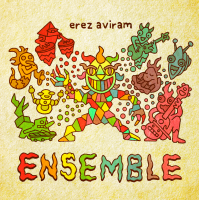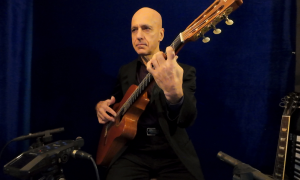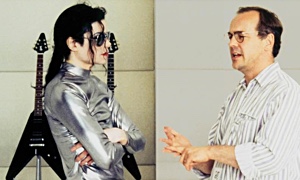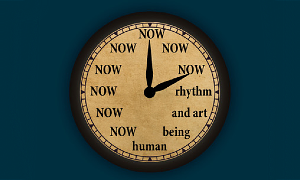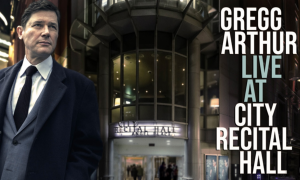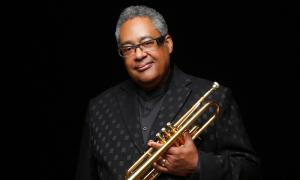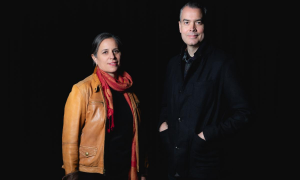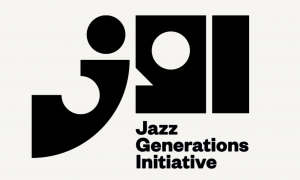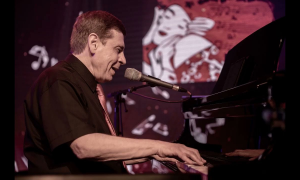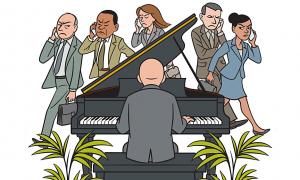By Steve Provizer
Too much of a bad thing, no doubt, but being unemployed has induced hyper-posting. My Little Grey Cells, otherwise preoccupied for the last 12 years with idle strategies for world domination have lately been inspired by things people write in the comments. In this case, the ego posting.
The interplay of ego on the bandstand is a marvelous labyrinth-a combination of conscious and unconscious body language, visual signals and-whether playing music with or without harmonic guideposts-perceptions of how much and how well people are listening.
The most successful collaborations calibrate egos through listening-active and intensive listening-which to me means an openness to allowing what someone else plays to effect your next musical decision. As with any kind of communications, this will be more or less conscious on the part of a given player. But somewhere along the line, the player has to decide that responsibility for the music's success is shared; that he or she is willing to be a part of a larger group that either delivers the goods or screws up.
Solo genius is not predictive of collaborative genius. Bruno may disagree, but when I listen to Bird playing fours with other horn players, I don't have the impression of a person who has made the decision to really share the space. While the other soloist plays his 4, Bird's next entrance seems to say that he had been listening less than thinking about what his next 4 bars would be.
I think that many of us have been in the position of sharing a bandstand with a musician who simply wants to get his own agenda across. This is acceptable if you've understood that your role is sideman, know the limits of your soloing, etc. But in any purportedly collaborative situation, it's alienating and disastrous. Amazingly, I'm not sure the audience always hears it. Visuals can be so important to an audience and musicians are oiten too well-mannered to let their irritation and frustration show. When I talk about a bad playing experience, this is at the top of the list, above audience size, response and finances.
Too much of a bad thing, no doubt, but being unemployed has induced hyper-posting. My Little Grey Cells, otherwise preoccupied for the last 12 years with idle strategies for world domination have lately been inspired by things people write in the comments. In this case, the ego posting.
The interplay of ego on the bandstand is a marvelous labyrinth-a combination of conscious and unconscious body language, visual signals and-whether playing music with or without harmonic guideposts-perceptions of how much and how well people are listening.
The most successful collaborations calibrate egos through listening-active and intensive listening-which to me means an openness to allowing what someone else plays to effect your next musical decision. As with any kind of communications, this will be more or less conscious on the part of a given player. But somewhere along the line, the player has to decide that responsibility for the music's success is shared; that he or she is willing to be a part of a larger group that either delivers the goods or screws up.
Solo genius is not predictive of collaborative genius. Bruno may disagree, but when I listen to Bird playing fours with other horn players, I don't have the impression of a person who has made the decision to really share the space. While the other soloist plays his 4, Bird's next entrance seems to say that he had been listening less than thinking about what his next 4 bars would be.
I think that many of us have been in the position of sharing a bandstand with a musician who simply wants to get his own agenda across. This is acceptable if you've understood that your role is sideman, know the limits of your soloing, etc. But in any purportedly collaborative situation, it's alienating and disastrous. Amazingly, I'm not sure the audience always hears it. Visuals can be so important to an audience and musicians are oiten too well-mannered to let their irritation and frustration show. When I talk about a bad playing experience, this is at the top of the list, above audience size, response and finances.









